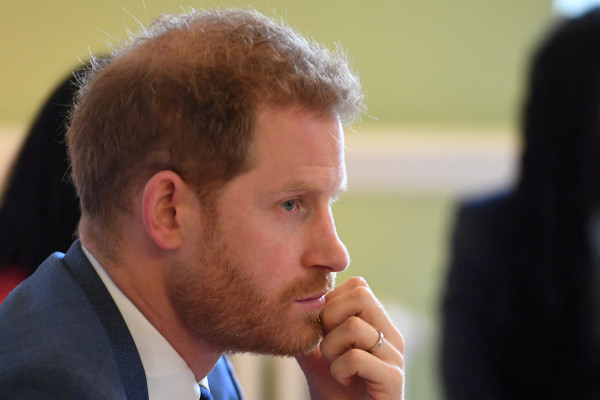Prince Harry Spending Spree Sparks Royal Anxiety: King Charles Frets Over Son's Finances

In a revealing new biography, fresh light has been shed on the complex financial dynamics within the British Royal Family, particularly concerning King Charles III's reported concerns about his son Prince Harry's long-term financial stability. The claims, made in royal reporter Robert Jobson's upcoming book "Catherine: The Princess of Wales," have ignited discussions about the sustainability of the Duke and Duchess of Sussex's lifestyle and the potential implications for the monarchy.
According to excerpts published in the Daily Mail, a Palace official is quoted as saying, "What worries His Majesty, and his top team, is what is going to happen when all the money runs out." This statement underscores the gravity of what Jobson terms "the Harry problem" within royal circles.
The financial concerns come in the wake of Prince Harry and Meghan Markle's high-profile departure from their roles as senior working royals in 2020. Since then, the couple has embarked on a series of lucrative business ventures, including deals with streaming giants Netflix and Spotify, reportedly worth $100 million and $20 million respectively.
Michael Cole, a veteran royal correspondent, offered insight into the potential reasons behind the King's worries. Speaking to GB News, Cole explained, "I would have thought that with the lifestyle they have adopted in Montecito, it's extremely expensive. You can burn through an awful lot of money with security around the clock, 365 days of the year." He added, "Although they have earned a great deal of money from Netflix in particular and other ventures they are undertaking or have completed, you can quickly become poor and their ambitions are high."
The financial situation of the Sussexes has been a point of contention since their departure from royal duties. In their 2021 interview with Oprah Winfrey, Prince Harry claimed that his father had "literally cut me off financially," citing this as a motivation for their pursuit of commercial deals.
Despite the tensions, there are indications that King Charles may be open to providing financial support to his son if needed. Cole suggested that the King's recent cancer diagnosis might have softened his stance, stating, "King Charles has had a tap of the shoulder from fate. He, above all, wants reconciliation with his younger son."
However, the potential for reconciliation and financial assistance is complicated by the strained relationships within the royal family. The Sussexes have been critical of various royal figures, including Princess Kate, King Charles, and Prince William, in their public statements and media projects.
Jobson's book also highlights a "Sussex-shaped void in the Royal Family," referring to the loss of both star power and manpower resulting from Harry and Meghan's departure. This void, according to Jobson, "has never loomed so large."
The financial concerns come at a time when the monarchy is navigating a period of transition and public scrutiny. The potential need for financial support for the Sussexes could have implications for the royal family's public image and internal dynamics.














